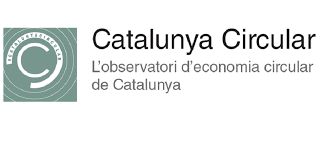Fundería Condals, S.A. is a manufacturing company of medium and large series of nodular iron and grey cast iron from the molding in sand of automatic castings. This is fed by furnaces of induction of casting and maintenance. The company has a production of more than 35,000 t/ year, with the 90% of the production dedicated to the market of critical parts and safety in nodular cast iron for the automotive sector (brakes, differential boxes, sleeves, supports, holders gearboxes, engine parts, air conditioning, etc.). Other sectors in which it also participates are railroad, construction, hydraulics and machinery (arms, supports).
During the production of nodular casting, molds are used where the cast iron is poured with silicon, magnesium, copper and scrap steel alloys to create an exothermic reaction that causes nodularization of the cast iron. Simultaneously, the preparation of the cores is carried out. These are refractory auxiliary elements, permeable and easily prepared by means of silicon sands, resins and a hardener of dimethyl ethyl amine, which are incorporated into the molds. For the preparation of the molds, sand, bentonite, coal and water are mixed in a mill; then the core is coupled in the mold and the metal is strained in order to obtain the shapes of the parts to be manufactured. Finally, after passing the cooling line, the products are transported to the demolding drum where the molding sand of the iron is separated and recirculated to be reused. The final pieces pass through a blasting process and are placed in metal containers to be sent, if requested by the customer, to processes of deburring, machining or heat and / or surface treatment, managed by external suppliers.
Foundry sands are characterized by the ability to maintain their shape, a permeability derived from their granulometry, thermal stability, a capacity for collapsibility and for being reusable. In the cycle a surplus of sand is produced due to the addition of new sand and the use of the recycled sand, which are transported to be removed as a by-product. In addition, fines are produced during the process which are aspirated and are also sent to be withdrawn as a by-product.
These sands and smelts removed as a by-product according to waste code CER No. 100906 (classified as non-hazardous) are transported as raw materials to a receiving company in the construction sector, in order to carry out the mortar manufacturing process and dry concrete replacing the limestone. The raw materials used are limestone, cement and the additive to which the desired formula is applied and homogenized until the final product is obtained.
The advantages of managing the waste as a by-product according to the Catalan regulatory framework are:
- Environmental sustainability.
- Minimisation of waste treatment costs.
- Minimisation in the management of waste through landfills.
- Application of the waste management hierarchy.
- Valorisation of waste as raw materials.







